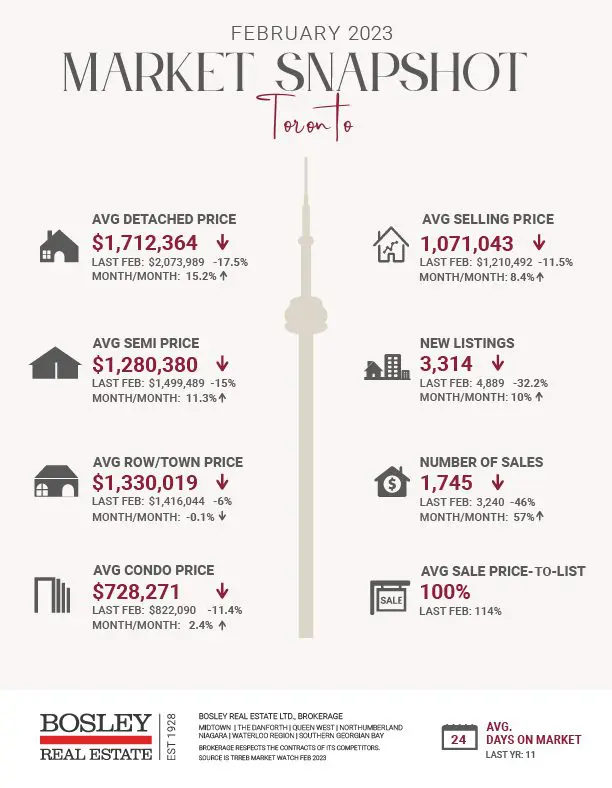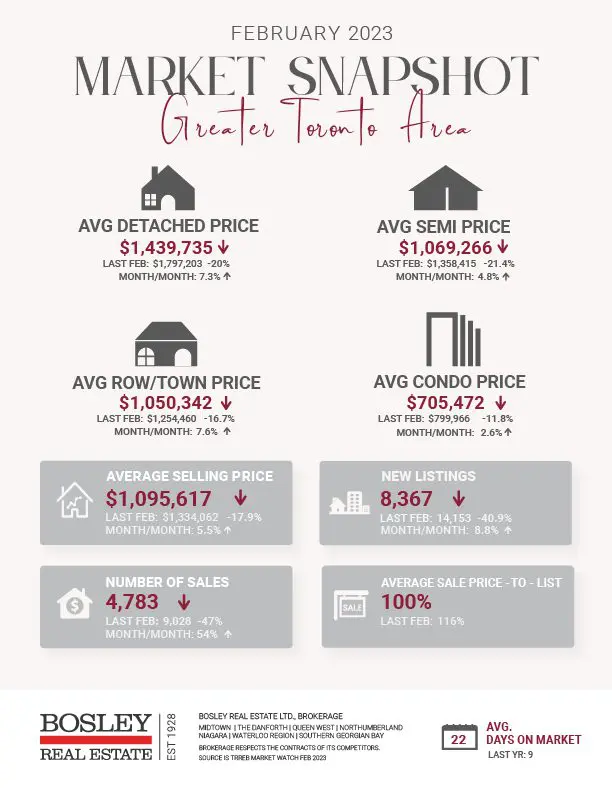
Canada’s rental housing shortage will quadruple to 120,000 units by 2026 without a significant boost in stock, Royal Bank of Canada said in a report this week. In order to reach the optimal vacancy rate of three per cent, the report suggested Canada would need to add 332,000 rental units over the next three years, which would mark an annual increase of 20 per cent compared with the 70,000 units built last year.
The research analyzed vacancy rate data released in January by the Canada Mortgage and Housing Corporation (CMHC). Canada’s vacancy rate fell to 1.9 percent in 2022, its lowest point in 21 years, from 3.4 per cent in 2020 and 2021. Competition for units also drove the highest annual increase in rent growth on record, by 5.6 per cent for a two-bedroom unit.

Canada’s rental housing stock grew by 2.4 per cent in 2022, led by Calgary at 7.4 per cent and Ottawa-Gatineau at 5.5 per cent, while Toronto and Montreal saw the smallest percentage increases at 2.1 per cent and 1.4 per cent, respectively. “We haven’t seen that many additions to the purpose-built inventory in almost a decade, so you would think that added supply of units would ease some of the competition, but what the CMHC rental market data revealed to us was that it didn’t,” said RBC economist Rachel Battaglia.
Slow growth in Canada’s two most populous cities has been outpaced by rapidly increasing demand, partly fueled by high immigration levels, she said. Annual federal immigration targets are set to grow eight per cent by 2025, meaning demand is unlikely to let up. Battaglia also pointed to affordability and behavioral preferences for the influx of rentals sought. She said more Canadians are choosing to live alone, meaning fewer incomes per household.
“You have a lot of people being funneled into the rental market who maybe would have liked to own something but it’s just not financially in the books for them right now,” said Battaglia.
The report estimated an existing deficit of 25,000 to 30,000 units of rental stock across Canada. In addition to building more supply, it recommended turning condo units into rentals, converting commercial buildings and adding rental suites to existing homes to help ease the pressure.

Here are the top 5 trending stories of the week:
- Canadians remain optimistic about long-term financial performance of real estate: report
“An overwhelming majority of Canadians remain confident about the long-term financial performance of residential real estate, according to a recent report by Mustel Group and Sotheby’s International Realty Canada. The generational trends report, which surveyed 2,000 Canadians aged between 18 and 77 years old in Vancouver, Calgary, Toronto and Montreal, suggests that 49 per cent of urban Canadians believe that a home or residential real estate purchase will perform the same or better than their other financial investments in the next 12 months.” - Where GTA Homes Have Experienced the Biggest, and Smallest, Value Drops Since the 2022 Peak
“Last week, Toronto real estate expert John Pasalis released a comprehensive chart outlining the drop in sale prices of low-rise homes in various regions of the Greater Toronto Area, comparing February 2023 sales to those one year prior. Toronto mortgage broker Ron Butler — a notoriously tough critic — called it “the best table on the GTA price fall since the peak in February 2022.” Inevitably, Pasalis’ findings inspired a conversation on social media about Ontario’s dramatic real estate market.” - ‘It’s not always straightforward’: The risks and rewards of buying a pre-construction home
“The housing market is tough. For buyers, higher interest rates means higher mortgage payments. While housing prices are cooling, they’re still pretty high, especially for people looking to get their first home. While home prices declined throughout 2022, the cost of a home is still higher than at the beginning of the pandemic.” - It now costs $400 more to rent a Toronto apartment than one year ago.
“Soaring rent prices continue to trend across the GTA, and a new report reveals that tenants will have to shell out an extra few hundred bucks this year to secure an apartment in downtown Toronto. The latest Toronto Rent Report from liv.rent shows that the average monthly rent for an unfurnished, one-bedroom unit in the GTA has increased for the second month in a row by $65 since February.“ - Toronto launches new portal aimed at boosting transparency around housing plan
“This new reporting system comes three months after Toronto City Council voted overwhelmingly in favour of a proposal from former mayor John Tory to create a “housing action plan” that could see major changes to zoning bylaws, including allowing the building of multiplexes on all residential lots and legalizing rooming houses. ”

The Bosley Advantage
Read about the heritage and innovation that form the foundation for Bosley’s industry-leading approach to real estate.









